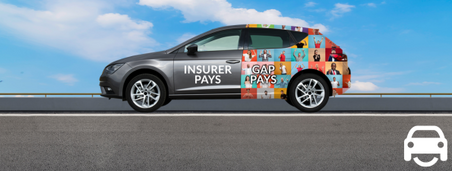Roadside litter has always been a problem but why has it been back in the headlines?

National Highways, the tax payer-funded organisation with a statutory duty to ensure England's motorways and major A roads are free of litter, was taken to court in January 2024 by campaign group Clean Up Britain over claims it is failing in that duty. Unfortunately, the case was adjourned for administrative reasons and will now take place later in the year but the point was made.
What triggered the group's action?
Simply, exasperation with the state of the country's major roads, a situation common to other nations in the UK. The figures are horrifying: between April 2020 and March 2022, 45,000 bags of rubbish weighing 451 tonnes were collected from the M6 motorway. During a five-day period in 2023, one local council collected 1000kg litter and 17,360kg of debris on a stretch of the A3 and A331 in Surrey. There are no national figures for the quantity of roadside litter and rubbish collected each year but in 2022, National Highways said that it cost it and local authorities £1 billion each year to clear up. According to a survey carried out in 2020 by the same organisation, one in seven drivers admitted to littering.
Who is responsible for clearing other roads?
Across the UK, local authorities are responsible for clearing rubbish on major and minor roads. In Scotland, Transport Scotland is responsible for motorways and special roads. In Wales such roads are the responsibility of the South Wales and North Wales Trunk Road Agencies.
What sort of litter is dropped?
On just one 70-metre section of verge on the A3 in Surrey, where the road meets the M25, pickers recently collected 35 vapes, 79 drinks cans, 38 coffee cups, 39 sandwich packets, handfuls of nitrous oxide capsules (these were banned in November 2023) and five soiled nappies, plus countless cigarette butts. Elsewhere and especially where trucks park, human waste is often found which requires special handling. National Highways is exploring providing composting toilets and compacting bins. Meanwhile, the organisation reports that the fly tipping of construction rubbish is a growing problem. Ironically, its roadworks signs and sandbags are also often found abandoned. Most littering occurs at roundabouts and on slip roads when traffic is moving more slowly and it's easier to throw rubbish.
What anti-litter laws are there?
Since 2018, councils have been able to issue a £150 fixed penalty charge notice, reduced to £50 if paid within 10 days, to anyone seen throwing litter from a vehicle. If the culprit cannot be identified, the driver is always considered responsible. If the PCN is ignored the fine increases and may be recorded as a debt, recoverable by bailiffs. Recently, a driver was fined £1500 for littering after he failed to attend court. However, according to research by Clean Up Britain, many councils are failing in their duty to fine litterers.
How can I report a litterer?
Local authorities will require all relevant information including location, date and time of the offence, vehicle details (make and model), vehicle registration number, if possible a physical description of the person(s) involved, the type of litter deposited and whether the person depositing the litter was a driver or a passenger. Dashcam footage is accepted. To report litter on National Highways roads, email info@highwaysengland.co.uk.
What are anti-litter campaign organisations doing to combat the problem?
Clean Up Britain is campaigning for the littering fine to be increased to £1000 and for six points to be awarded when a driver has littered on the move. It has also published a 10-point motorway action plan whose demands include calling on National Highways to ensure contractors no longer dump unwanted roadworks signage, to install cameras at littering hot spots, to seek prosecution powers and to establish a litter reporting website for the public. Keep Britain Tidy is rolling out its 'Don't be a Tosser' anti-litter campaign to district councils urging them to remind drivers of the £150 litter fine and that littering is anti-social.
What do MPs say?
In March 2023, 15 MPs signed an early day motion that read: 'This House deplores the huge amount of litter on motorways, access roads, junctions and verges; notes that there is a crystal clear legal obligation on National Highways to ensure roads are kept clear of litter; and calls on National Highways to act on this obligation, use motorway gantries to promote anti-littering messaging, ensure staff and contractors remove signs, sandbags and cones following roadworks in a timely manner and ensure contracts include financial penalties for not doing so.'
What does National Highways say?
It says that it complies with its duties under the Environmental Protection Act but that because its roads are particularly dangerous and therefore classed as 'special circumstances', it is only obliged to collect litter when it is safe and practicable to do so. Even so, it claims its teams of litter pickers are out clearing its roads every day, collecting 'tens of thousands of bags of rubbish every year.' It adds that it has no enforcement powers so works with local councils who do on identifying fly tippers and installing roadside cameras. It is also exploring fitting GoPro body cameras to its traffic officers to record littering and also trialling AI cameras with the same aim.
What can I do?
Don't drop litter but if you want to help clean up after those who have, visit Keep Britain Tidy or CleanupUK for details of its volunteer litter picker meet-ups or go on your local Facebook community page for other groups near you. Before you venture out, check your local council's risk assessment guidelines, paying special attention to advice on protective and hi-viz clothing, equipment and safe conduct on roadside verges. Children should not participate.




